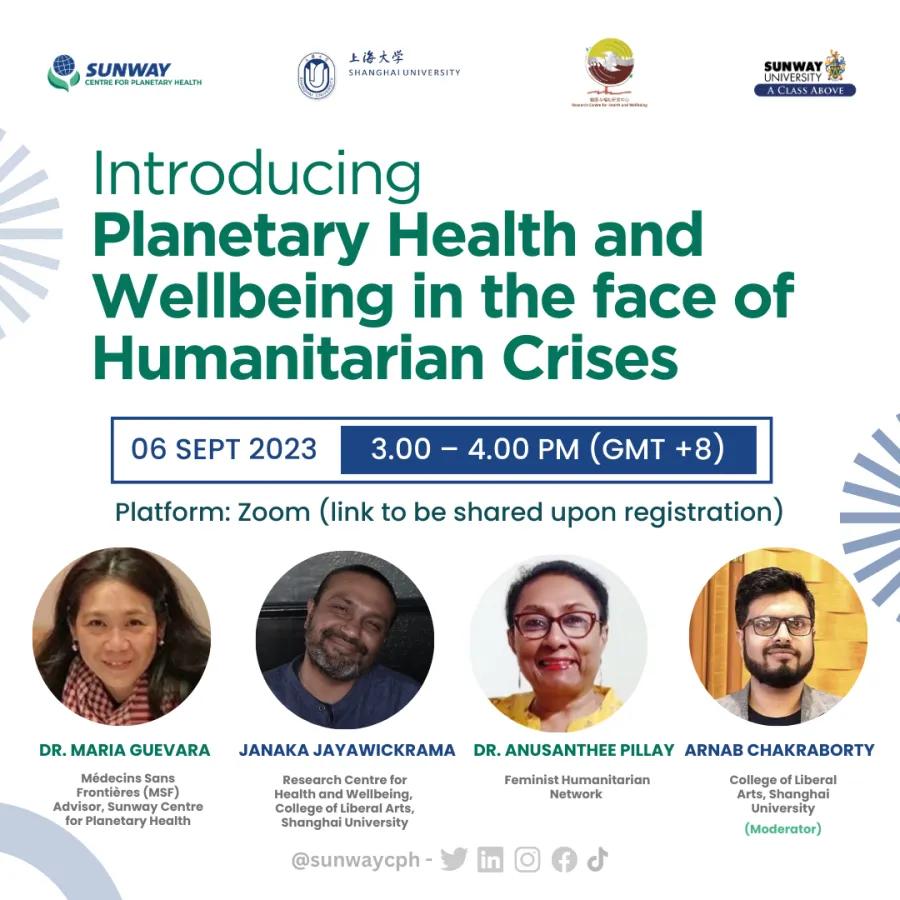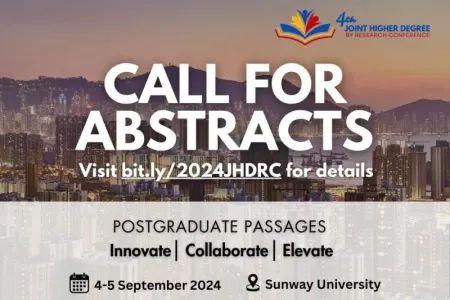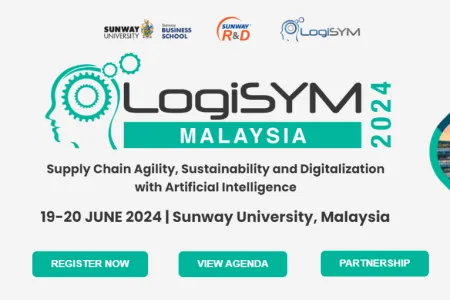Webinar on Introducing Planetary Health and Wellbeing in the Face of Humanitarian Crises
Event has passed

This webinar aims to increase awareness of some of the issues facing the humanitarian system as it grapples with the need to change its ways so that they are more climate and planet friendly. It also aims to inspire collective action that will help the system navigate towards practices that support the emergence of a more sustainable and resilient future, especially for those caught up in the scourge of war and other disasters. It is an excellent opportunity for professionals, researchers, policymakers, and humanitarian workers to engage in insightful discussions, share valuable knowledge, and foster collaboration to tackle the multifaceted issues at hand.
'Introducing Planetary Health and Wellbeing in the Face of Humanitarian Crises' is jointly organized by the Sunway Centre for Planetary Health, Sunway University, and Research Centre for Health and Wellbeing of the College of Liberal Arts, Shanghai University.
Overview
In recent years, the world has witnessed an increase in both humanitarian crises and environmental challenges, with natural disasters, armed conflicts, and infectious disease outbreaks affecting millions of people. The concept of "Planetary Health" has emerged as a vital framework that acknowledges the intricate interplay between human health, the environment, and socio-economic systems. In the face of humanitarian crises, such as wars, famines, and pandemics, preserving planetary health becomes even more critical for the overall wellbeing of affected communities. To safeguard both planetary health and wellbeing during humanitarian crises, now is the time for reflection on ways in which the humanitarian system can play its part in supporting a transition to practices which limit environmental impact while providing protection to those who have been displaced or otherwise affected by conflict or so-called “natural” disasters. Areas for potential reconfiguration include:
- Sustainable Humanitarian Aid: Humanitarian organizations are signing up to prioritize sustainable practices in their aid efforts, through the Climate and Environment Charter for Humanitarian Organisations, and by investing in and providing renewable energy solutions, efficient resource management, and eco-friendly infrastructure. Similarly the ‘Early Warnings for All’ initiative being jointly led by the UN and IFRC, aims to ensure that everyone on earth has access to climate-related early warning information by 2027. These are commendable initiatives but require an all of system commitment if real change is to be achieved, and on this the humanitarian system has, at best, a patchy record.
- Environmental Education: Providing both at risk and already affected communities with relevant and timely environmental education can foster long-term resilience and encourage sustainable practices.
- Collaborative Efforts: Closer engagement between stakeholders in effective humanitarian action, where Governments, NGOs, international agencies, the private sector and others must work together to address the complex challenges posed by the connections between climate change and humanitarian crises, incorporating planetary health principles into their policies and programs.
- Community Engagement: Involving local communities in decision-making processes, considering their traditional knowledge and practices that contribute to ecosystem conservation must be reinforced. The aspirations of the 2016 Grand Bargain and successor arrangements are clear but, to date, very poorly and patchily implemented. If resilience is to be sustainable much more must be done to break down silos, listen to local wisdom and act in concert with what local communities want and need rather than what international frameworks monitoring and evaluation log frames demand. It is well past time to fix this issue;
the stubbornness of the system to effect change should be a matter of shame for all serious and principled humanitarian actors and those that pay their bills.
Objectives
- To lay out the current climate and planetary health related challenges facing humanitarian organisations in their mandated function to provide humanitarian assistance to those in greatest need, in accordance with humanitarian principles, while adapting to new climate and ecosystem-driven realities.
- To create awareness and deepen understanding of the interconnectedness of mitigating the impact of crises by applying a planetary health lens to promote human well-being in crisis contexts.
- To foster cross-sector collaboration among academicians, environmental experts, humanitarian aid workers, policymakers, and other relevant stakeholders with the aim of identifying solutions to some of the current dilemmas faced by humanitarian practitioners in the context of the unfolding climate and planetary health crises.
- To start the process of developing a call for action on planetary health and humanitarian crises for formal adoption at the 2024 Planetary Health Summit and 6th Annual Meeting.
Participants
This webinar is open to the global community of academicians, researchers, students, policy makers and humanitarian organizations having an interest in planetary health and wellbeing.
Proposed Agenda
Moderator : Dr Arnab Chakraborty, College of Liberal Arts, Shanghai University
| TIME | AGENDA AND SPEAKER | |
|---|---|---|
| 3.00 - 3.05 PM | Welcome by the Moderator | |
| 3.05 - 3.15 PM | The importance of the planetary health approach in the context of humanitarian crises. Dr. Maria Guevara, Advisor, Sunway Centre for Planetary Health, Sunway University International Medical Secretary, Medecins Sans Frontieres (MSF) | |
| 3.15 - 3.25 PM | Understanding the links between health, society, and planet. Prof. Janaka Jayawickrama, Research Centre for Health and Wellbeing, College of Liberal Arts, Shanghai University | |
| 3.25 - 3.35 PM | Planetary Health, Women, and Children – Experiences from the field Dr Anusanthee Pillay, Feminist Humanitarian Network and the UN mandated University for Peace (UPeace) | |
| 3.35 - 3.55 PM | Question and Answer Session | |
| 3.55 - 4.00 PM | Vote of Thanks by the Moderator |





